Everything You Need to Know About CBD Oil
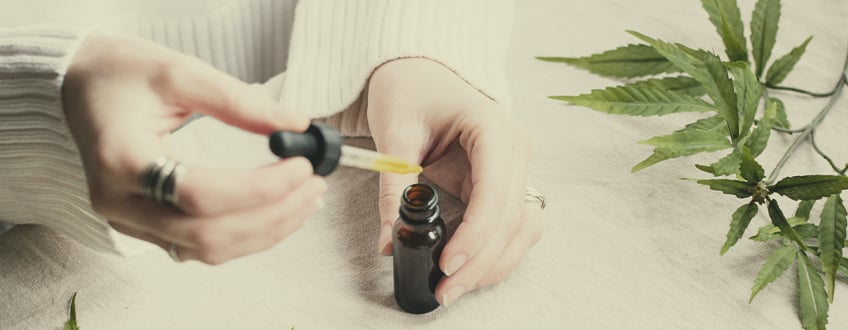
We'll teach you everything you need to know about CBD oil, one of the most popular health supplements out there.
Contents:
It’s no mystery that cannabis-derived products, especially CBD oils, have become highly popular over the past few years. Consumers can now find all sorts of cannabidiol concentrates in dispensaries and health stores.
The variety is wonderful, yes, but it can make finding the right CBD oil quite difficult. In this guide, we’ll take a thorough look at CBD oil, explain what it is and show you how it works.
What is CBD Oil
CBD oil is a product that is made from hemp plants. As you might guess, its main ingredient is the cannabinoid CBD (cannabidiol), which is just one of many active compounds within hemp. You might also remember that THC, the compound responsible for getting you high, can also be found in hemp, albeit in very small amounts.
Unlike THC, though, CBD doesn’t produce a psychoactive “high” effect. In turn, the demand for CBD oils has skyrocketed, and many different types have been made to suit different people.
CBD oils are available in various strengths depending on how much CBD they contain. They can be formulated to contain nothing but pure CBD in a carrier oil, but the most popular products are those that contain the other naturally-occurring compounds in hemp plants.
The Compounds in CBD Oil
Essentially, CBD oil contains all the substances (minus the psychoactive THC) that are found in the hemp plant. This includes cannabinoids, which are compounds concentrated in the secretion of the resin glands (trichomes). They’re mainly found on the buds of female plants, but other parts of hemp plants (either gender) contain them as well.
Researchers estimate that there are 113 phytocannabinoids (phyto = plant), and CBD, along with THC, are the two most common. However, there are many more minor cannabinoids as well. For example, CBG (cannabigerol) and CBN (cannabinol) can also be enjoyed upon decarboxylating cannabis, and you can access CBN, which is found in mature cannabis plants, by aging your buds.
Terpenes
Terpenes are the other major compound group in hemp plants. Linalool, limonene or citronellol are some of the best known, but you can find over 100 different types in different hemp strains!
Primarily, they’re known for giving cannabis and hemp strains their unique aromas. However, their job extends beyond providing scent and flavor. In fact, recent research has revealed different terpenes may act synergistically with cannabinoids to alter their effects. Known as the entourage effect[1], it’s still just a theory. That being said, new evidence for it emerges regularly.
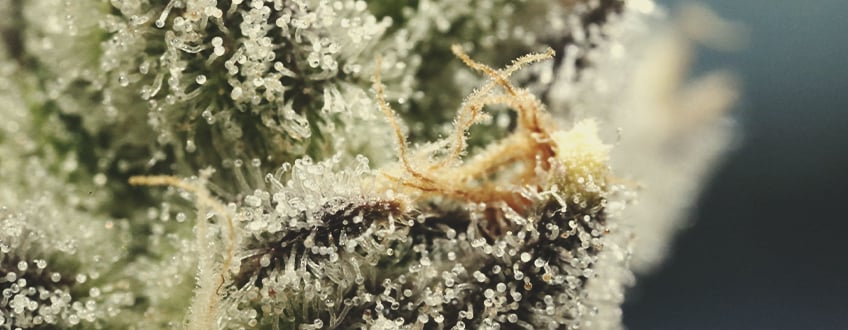
Where Does CBD Come From?
As we briefly mentioned earlier, CBD is usually extracted from hemp plants, which are a variety of standard cannabis plants. The distinction is rooted in their lower amounts of THC, usually not passing 0.3%.
That low percentage is vital for a CBD product’s legal standing, as any more THC will mean it has to be treated like any other THC-heavy product. For that reason, in Europe and America, the CBD used in CBD oil is almost exclusively extracted from industrial hemp grown under strict agricultural regulations.
Mechanism of Action
To understand how CBD works, you have to understand the endocannabinoid system. In short, it’s a biological system composed of endocannabinoid receptors that can be found throughout the body. Through modulation of neurotransmitter release, the endocannabinoid system regulates many bodily functions, including cognition, memory, sleep, pain sensation, appetite, immune function, mood, and many others.
So, if we’re not using cannabis, what interacts with this system? Well, firstly, the human body produces its own internal cannabinoids, which are called endocannabinoids. In turn, cannabinoids can also be found in plants and fruits/vegetables we eat every day! These, called phytocannabinoids, can be processed similar to the body’s endocannabinoids, and either directly or indirectly work with the receptors in turn.
One group of them, called CB1 receptors, can be found in both the central and peripheral nervous systems, with many receptors resting in the hippocampus and amygdala specifically. Those parts of the brain, for those who don’t know, are involved with regulation of memory, fear, and emotion. The other type of endocannabinoids receptor, CB2, can be found in immune cells, lymphoid tissue and nerves.
THC has a standard interaction here, binding to CB1 receptors to produce the physiological and psychoactive effects we associate with cannabis. CBD, however, acts in a different and more indirect way. Essentially, it inhibits endocannabinoid signaling, which in turn results in increased intracellular endocannabinoid levels. CBD is also understood to increase our internal levels of anandamide, a neurotransmitter that plays a key role in feelings of pleasure and motivation.
How Is CBD Oil Produced?
Not all CBD oils are the same. Potency, purity and terpene content depend on the manufacturing method. There are several extractions methods for getting the CBD from the plant, some of which are more effective than others.
How Is the CBD in CBD Oil Extracted?
Reputable CBD product producers will typically utilize supercritical CO₂ to extract their concentrates, but there are other processes out there as well. Typically, those involve solvents like butane, hydrocarbon, or steam. These extraction methods vary in their efficiency, though, and affect the purity and taste of the final product.
Here at Royal Queen Seeds, however, we use supercritical CO₂ extraction, which is the cleanest and most environmentally-conscious process out there. It ensures we can offer you a pure, toxin-free product every time. We do not use ethanol, butane, or any other substance that could taint the CBD oil or leave residue behind.
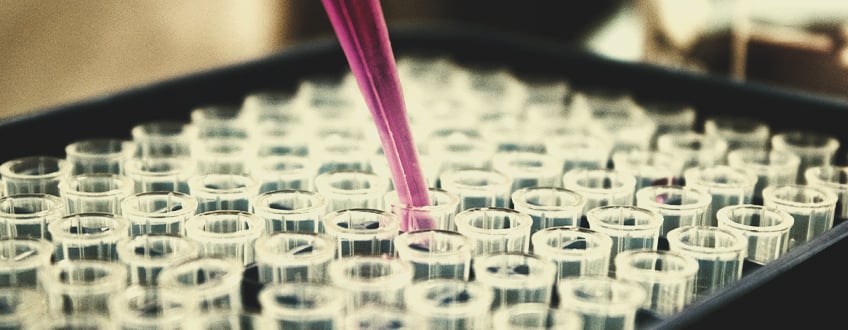
Carrier Oils
Carrier oil is another important aspect of a CBD oil’s quality. Naturally, pure CBD, especially CBD isolate, doesn’t taste great, and most of it goes to waste when consumed alone. A carrier oil, however, increases the bioavailability of the CBD, which means the body can metabolise it more easily. In addition to that, the added carrier oil makes measuring out doses easier, along with easing those bitter flavors.
Carrier oils will vary depending on make and manufacturer. The most common ones, however, are hemp seed and olive oil.
Hemp Seed Oil
Hemp seed oil is an excellent carrier for CBD oil since it combines the benefits of CBD with the rest of the compounds found in hemp. The result is a genuine whole-plant CBD oil that offers all the best of hemp. Even by itself, hemp seed oil has a very high nutritional value, offering a 3:1 ratio of omega-6 and omega-3 essential fatty acids.
Olive Oil
Olive oil is also an excellent carrier oil option. Like hemp seed oil, it has a multitude of proven health benefits on its own. Olive oil also has a great taste, making the product more palatable and easier to digest.
MCT Oil
MCT oil is a carrier oil made from a type of fat called medium-chain triglycerides. Thanks to the chemical structure, the body can break it down more easily than other oils. MCT oil also has antibacterial properties, which can help extend the shelf-life of CBD oils made from it. As far as appearance and flavor, though it’s clear and tasteless.
CBD Oil vs Other Types of Oils
Nowadays, when you mention cannabis oils, you could be talking about CBD oil, THC oil, or even hemp seed oil! They come from the same general plant species, yes, but they have little in common, and differ in regards to their active substances and intended uses. Because there are no regulations in place, manufacturers will sometimes intentionally mislead consumers. In turn, it's in your best interest to know the differences between various types of cannabis oils.
CBD Oil
As the name suggests, CBD oil mainly contains CBD. CBD oils are available in different strengths and they make use of various carrier oils. Full-spectrum CBD oils are particularly popular, as they contain not just CBD, but other useful cannabinoids and terpenes from the hemp plant. In turn, as the entourage effect suggests, full-spectrum CBD oils are believed to provide the most benefits.
-
Dropper Bottles vs Capsules
CBD oils are mostly available in dropper bottles or capsules. Every user has their own preferred method; capsules are easy to swallow and fit effortlessly into an existing supplement regimen. Dropper bottles allow for more freedom when it comes to dosing and can be placed directly under the tongue for faster absorption.
Cannabinoid Content: Full range of cannabinoids and terpenes (full spectrum), full range of cannabinoids and terpenes besides THC (broad-spectrum), just CBD (isolate)
Legality: Legal in most of Europe and the US
Effect Profile: Soothing
Uses: Recreational, Medicinal
Hemp Seed Oil
Hemp seed oil, as you may suspect, is made from hemp seeds. Unlike CBD oil, it does not contain any CBD, or any other cannabinoids for that matter. There is no “high” from consuming it, either. This oil, however, is rich in healthy fatty acids and other valuable nutrients, all of which make it a healthy oil for cooking. All this being said, it's considered an ideal carrier oil for CBD oil.
Cannabinoid Content: None
Legality: Legal
Effect Profile: No effect
Uses: Cooking
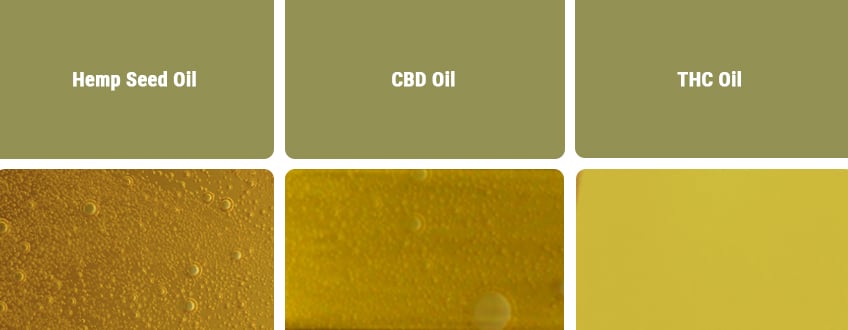
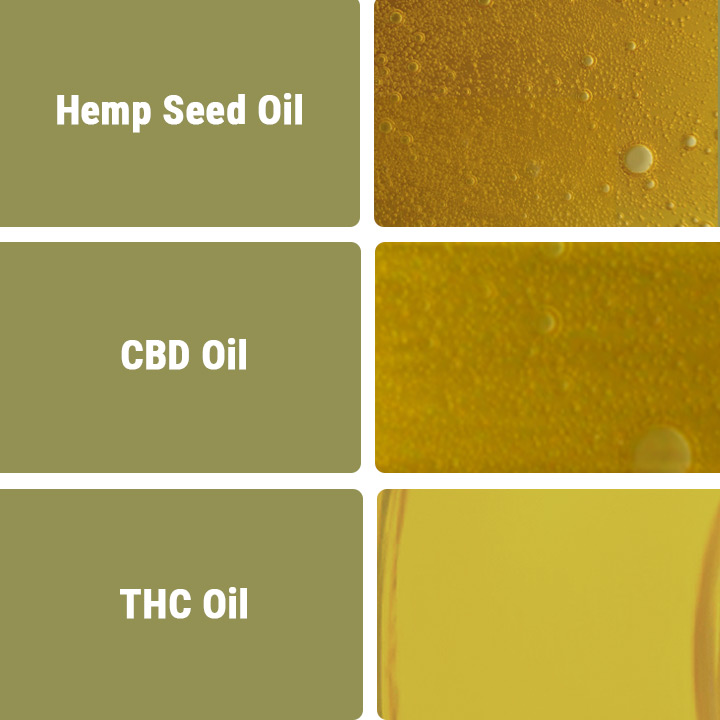
THC Oil
THC oil is made from standard cannabis plants, a.k.a. the same type of cannabis that recreational users enjoy get high. The big difference between it and most CBD oils, in turn, is that it contains a significant amount of the psychoactive cannabinoid THC, which isn’t majorly present in hemp.
Like ordinary cannabis, THC oil is (still) illegal in some countries, or at least requires a doctor’s prescription to obtain it.
As a result, consumers usually can’t freely obtain THC oil in many parts of Europe and North America. However, it’s popular where cannabis is legal/decriminalized, such as the Netherlands or certain parts of the US (where it's known as Rick Simpson Oil).
Cannabinoid Content: Full cannabinoid content incl. THC
Legality: Mostly Illegal
Effect Profile: Same effect as standard cannabis
Uses: Recreational, Medicinal
CBD Oil Made from Hemp Vs. CBD Oil from Standard Cannabis
For making the most common types of CBD oil, the CBD and other cannabinoids, terpenes, etc., are typically extracted from industrial hemp. Less commonly however, one may also find CBD oils that are made from standard cannabis plants. These oils will usually contain some THC, but not as much as a straight-up THC oil. In turn, consuming them will get you high, but not as high as you'd get when consuming ordinary cannabis. The CBD oils made from standard cannabis, due to THC restrictions for CBD-billed products, are still illegal in most of Europe.
CBD Oil vs Tinctures
Another area of confusion can be CBD oils versus CBD tinctures. The difference, simply, is in how they are made. A tincture is created by steeping CBD-rich flowers in high-proof grain alcohol, which is cooked over low heat for several hours. The result is a tincture with a potent CBD content, comparable to strong CBD oil. It can be taken orally (sublingually via dropper), or mixed with food and beverages. A tincture can also be a good DIY alternative to CBD oil, as it doesn’t require an involved extraction method, and is easy to make.
Full-Spectrum, Broad-Spectrum, and Isolate CBD Oil
So, what are the differences between full-spectrum, broad-spectrum CBD oil and CBD oil made from isolate?
-
CBD Isolate
CBD isolate is CBD oil that contains pure CBD (isolate) extracted from hemp in a carrier oil. Compared to full-spectrum products, CBD isolate oil doesn’t have any other active substances. Although generally not as popular than full-spectrum CBD oils, CBD isolate is a good choice if the consumer only requires pure CBD in their product.
| CBD ISOLATE |
|
-
Full-Spectrum CBD Oil
Sometimes also called “whole plant” oils, full-spectrum CBD products can be made either from the whole hemp plant or from the buds. They contain all the cannabinoids, terpenes, flavonoids that are also found in hemp. The compounds are working in synergy which is believed to have more benefits than a single compounds such as CBD on its own.
| FULL SPECTRUM |
|
-
Broad-spectrum CBD Oil
Broad spectrum CBD is like a middle-ground between CBD oil from isolate and full-spectrum CBD oil. The main difference is that broad-spectrum CBD oils do not contain any THC, not even trace amounts. Broad-spectrum products can be made by isolating individual compounds from the plant and recombining them for a product that can resemble a full-spectrum extract. They can also be made from a full-spectrum extract where the THC is afterwards being removed in a special process. One of the benefits of broad-spectrum extract is that these can have specific cannabinoid ratios. This is not always possible with full-spectrum oils as the natural phytochemical profiles of cannabis plants can naturally vary.
| BROAD SPECTRUM |
|
| FULL SPECTRUM | BROAD SPECTRUM | CBD ISOLATE |
|---|---|---|
| Terpenes and cannabinoids (THC: yes) |
Terpenes and cannabinoids (THC: no) |
Cannabinoids (CBD: 99%, THC: no) |
| Entourage effect | Relief without THC | No entourage effect |
| Essential vitamins | Strong taste and smell | Pure form of CBD |
What Is the Strongest Form of CBD Oil?
The strongest type of CBD would be isolate in its pure crystalline powder form. Pure CBD is very rare, though, and the difficulty that would come with dosing it would make it impractical. Out in the world, though, one may find CBD oils that contain 300–5000mg of CBD per 30ml bottle.
However, how much CBD a product contains isn’t the only factor in an oil's potency.
The reason is that the optimal potency of CBD oil for a consumer may depend on other factors, such as the intended use and expected effect(s).
For instance, some medicinal cannabis users may find a 1:1 oil gives them better results than a CBD isolate. Others may find that a full-spectrum CBD oil, even if there's less CBD than an isolate formula, may work better for them.
Last but not least, the quality and purity of CBD oil also plays a major role. A quality CBD oil, such as those available on the Royal Queen Seeds web store even will almost always offer better results than products from unverified sources.
Common CBD Oil Strengths:
2.5% - Mild: This is perfect for new consumers or those requiring only a small dose.
5% - Regular Strength: Good overall CBD oil concentration for regular use and consistent benefits.
10% - Strong: For experienced CBD users and if one needs a high dose of CBD for particular applications.
How to Consume CBD Oil
The best way to consume CBD oil is to take it sublingually. CBD oils usually come with a dropper bottle which facilitates this easy consumption method. Sublingual is the preferred (although not only) way to take CBD, as it allows the CBD to enter the bloodstream faster, allowing for a 20 minute onset. In contrast, when taken with foods, the body takes much longer to metabolize the CBD.
To take a desired dosage, simply put a few drops of CBD oil under the tongue, and allow that membrane to absorb the CBD.
Alternatively, CBD oil can also be consumed by putting a few drops on sugar, or adding it into foods or drinks.
Many CBD oils can also be applied topically on affected skin areas, allowing for quick and direct relief.
 CBD Dosage Calculator
CBD Dosage Calculator
 CBD Dosage Calculator
CBD Dosage Calculator
-
Suggestions From RQS
When dosing CBD orally, we recommend combining CBD oil with your favorite food. This makes it effortless and enjoyable to take. Put some drops into a tasty smoothie or add some on top of your favorite fruit.
When taking CBD sublingually, place a few drops under your tongue and hold them there as long as you can (up to around one minute). Although it becomes tempting to swallow, the longer you hold it there, the more CBD will pass through into your blood and produce near-immediate effects.
CBD Oils and Bioavailability
Some newer CBD oil products offer improved bioavailability over regular varieties, but you may wonder how that's even possible,
One way to go about this is by adding in liposomes, which are microscopically small bubbles of liquid that encapsulate CBD. With their help, the cannabinoid can be carried further within the body, past the intestinal membrane, to specific tissues. The CBD inside these tiny spheres is protected as it reaches the target areas, allowing for particularly high CBD bioavailability.
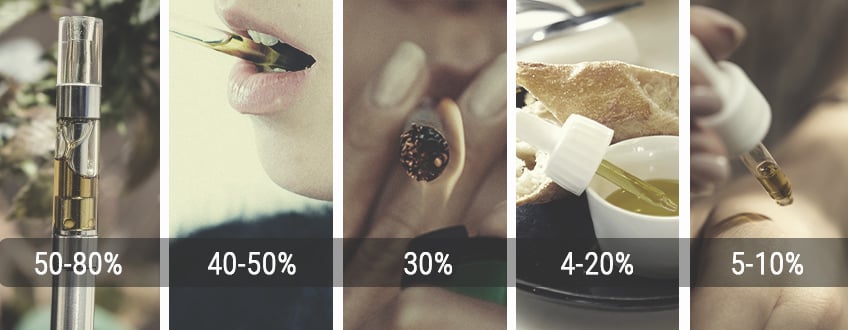
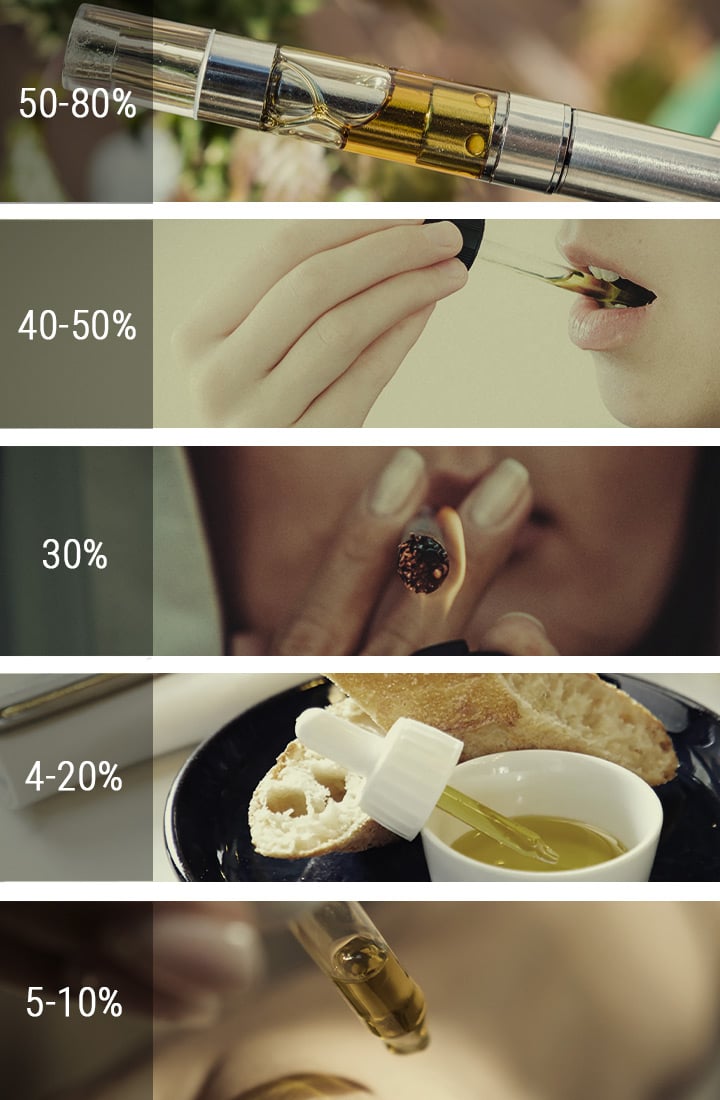
How to Choose the Right CBD Oil
As mentioned, the right CBD Oil for you will depend on a number of factors. However, there are a number of things that you should look into before buying.
-
Know What’s in it
When buying CBD oil, don’t just buy judging from the tag or the manufacturer's description. Make sure you know what’s in your CBD oil, and in what amounts. Does the product even contain CBD? Is the CBD oil made from CBD isolate, or is it full-spectrum? Know what you’re getting before pushing that order button.
-
Are Test Results Available?
Anyone can make all sorts of claims, but you will never know what you're really getting unless it's analyzed and verified by a third-party lab. A reputable CBD oil manufacturer will always pride themselves on providing independent lab results, and will usually make them available to consumers. These tests can also show you whether a product contains impurities or other harmful ingredients. If a manufacturer doesn’t make test results available, chances are your money is better spent elsewhere.
-
Know Your Dosage
If you’re new to CBD, it can be best if you start out with a mild oil at first. Observe the effects, and increase dosage until you see the expected results. In other words, start low, and work your way up if necessary. Don't get too out of control, though, and make sure you're getting advice from your doctor along the way.
-
Where Does the Hemp Come From?
Look for products made from organic-grown hemp, as they're far less likely to be laced with pesticides or other chemicals.
-
Don’t Just Look at the Price
You may be tempted to get the cheapest CBD oil you can find, but cheaper almost certainly isn’t better. CBD oil from reputable companies may cost more, but you'll get a safer, lab-verified, and a (likely) more enjoyable product in return. It'll be healthier, too, and you'll be more likely to experience the full effects. In this case, you truly get what you pay for.
That doesn't mean every expensive CBD oil is good, though. As we said before, you should only trust an oil if the manufacturer can show you clean lab results from a third-party testing facility.
Frequently Asked Questions
Both new and long-term users often have a lot of questions about CBD. Find out the answers to the most common queries below.
- ⚕️Is CBD Oil Safe?
- CBD oil is generally safe and well-tolerated in most people. However, you should always consult your doctor before taking CBD, as the cannabinoid affects the metabolism of some medications.
- 📝 Does CBD Oil Have Side Effects?
- Although mostly well-tolerated, side effects do occur in some users, such as dry mouth, diarrhoea, reduced appetite, drowsiness, and fatigue.
- ⚡ Can You Get High From CBD Oil?
- As a non-psychotropic cannabinoid, CBD doesn’t produce a high like THC. Instead, the molecule supports a clear mind, and may actually reduce the psychotropic effects of THC when used together.
- ⏱ How Long Does CBD Oil Take to Work?
- The onset of CBD varies depending on the route of administration. Oral CBD takes 30–60 minutes to take effect and lasts 4–6 hours. Sublingual CBD oil takes effect within several minutes and lasts around 4 hours.
- 🧪 Will CBD Oil Show Up on a Drug Test?
- CBD itself won’t show up on a drug test. However, most CBD oils contain trace amounts of THC. Although minute, even negligible amounts of THC may show up on a drug test. We strongly advise purchasing lab-tested CBD products and reducing consumption before possible workplace drug testing.
- Taming THC: potential cannabis synergy and phytocannabinoid-terpenoid entourage effects https://www.ncbi.nlm.nih.gov
Categories
CBD Oil



































